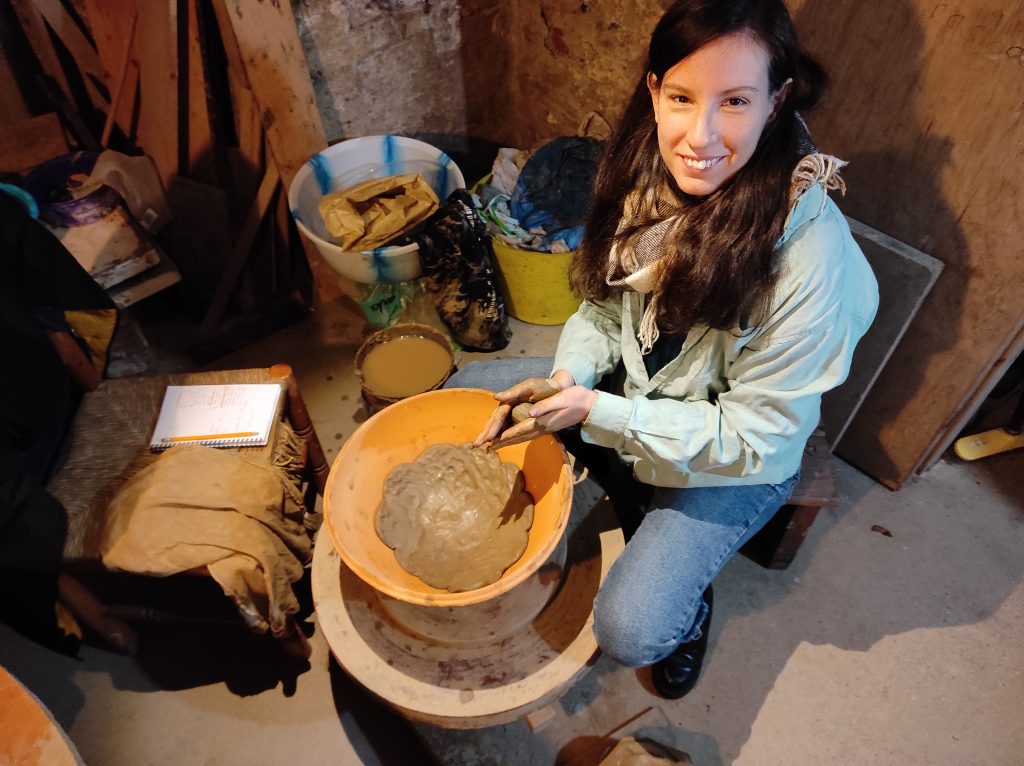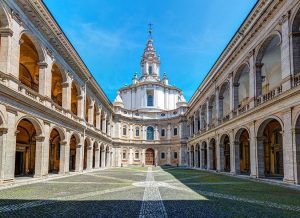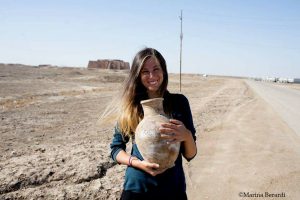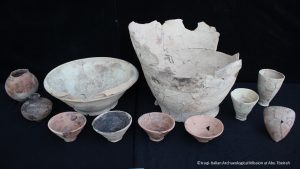
PhD Archaeologist Marta Shares Her Research Experience So Far
Marta Zingale is a 3rd year PhD Archaeology student specialising in pottery from southern Mesopotomia (modern day Iraq). In this interview piece, she shares her motivation for studying on a PhD and her advice for future PhD students.
Where were you before starting your PhD in Manchester?
I did my BA and MA in Archaeology at ‘La Sapienza’ University of Rome. I then studied at The University of Manchester for six months as a visiting student before applying for the PhD.

La Sapienza University of Rome
When did you first know you wanted to study at PhD level?
After finishing my master’s degree, I was not quite sure if I wanted to do the PhD. Therefore, I spent six months at the University of Manchester as a visiting student and later worked in commercial archaeology. The six-month study period in Manchester allowed me to increase my knowledge and skills in the field of expertise in a new academic environment. Also, it gave me new stimuli to better develop a PhD project that would be a continuation of my Master’s degree. On the other hand, working as a freelance provided me with my first experience in a working environment outside of academia.
When I decided to do my PhD, I was determined to do it in Manchester as I already knew the campus and the professors who later became my current supervisors. During my time here as a visiting student, I was able to frequent the department, get to know the academic community and personally observe what the university could offer me in terms of useful and related resources for my research.
Can you provide an overview of your research project?
My project aims to reconstruct the organization of pottery production during the third millennium in southern Mesopotamia (Iraq) with a focus on identifying recurrent gestures that characterize the production of specific standard vessel shapes and/or distinguish between production set-ups over time. The research applies an interdisciplinary approach that combines macroscopic, radiographic, and experimental analyses.

Marta with Mesopotamian pot in Iraq
How is your PhD funded?
I am funded by the AHRC NWCDTP. It was quite easy for me to apply for a scholarship because all the information I needed was on the School’s website. Although there are different opportunities, they can vary depending on international or national students.
What distinguishes academic research in Archaeology from other subjects?
A PhD in Archaeology is usually very dynamic because it combines reading and writing but also several fieldwork activities in museums and/or archaeological excavations. According to the area of expertise, you could be able to work with other academic specialists or craftsmen who will help in the understanding and reconstruction of the past. Moreover, a postgraduate research in Archaeology gives the opportunity to visit different countries, learn from other cultures and meet lots of people with a similar or different historical and cultural background.

Examples of Mesopotamian Pottery
What skills and qualities do you believe are essential for future PhD students?
The main traits a prospective PhD student should develop to get academic results are organisational and time-management skills but also enduring curiosity and a love of learning. It is important also to be persistent and resilient (overcoming challenges and bouncing back from failures). Some tips I found useful during my PhD are to set up regular meetings with the supervisor, work smart and learn to take breaks, get involved in the academic community, not be afraid to seek help and get some good habits started (e.g. workout).
How do you balance your time with research with social and other commitments?
The best way to balance work and social life is to manage time effectively. Very often easier said than done. It is important to create a weekly programme that includes meetings, study sessions and social commitments. It is important to follow the programme as much as possible because it gives you stability and control of your time. The PhD is highly demanding and it is inevitable that takes most of the time but having a social life and not being isolated is important too for mental health. I am in the third year of my PhD, hence the pressure and stress are elevated but I try to have at least one day off during the weekend.
What are the main challenges you have faced during your PhD so far?
The demanding nature of the PhD often involves long working hours, which makes it difficult to separate work from personal life and can cause burnout and a general sense of stress. In addition, dealing with institutional bureaucracy (e.g. grant applications, ethics approval, administrative procedures) adds another layer of complexity to the PhD, as it can be time-consuming, demanding and mentally draining, diverting energy from research and contributing to stress.
Despite the difficulties, I am extremely satisfied with what I am doing and I do not regret having decided to follow an academic career after the master’s.






0 Comments